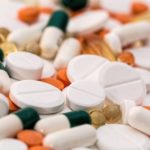02 Mar LGBTQ & Drug abuse in GA
Table of Content
LGBTQ is the acronym when referring to lesbian, gay, bisexual, transgendered, and queer (or questioning). Most people are surprised to learn that up until a few decades ago (1973) any form of homosexuality was considered an illness and disorder by the American Psychiatric Organization. While that stigma has been slowly dissipating over time another problem has arisen – heavy drug and alcohol abuse and addiction in the LGBTQ community. Atlanta based organization called Georgia Equality is working hard “to advance fairness, safety and opportunity for lesbian, gay, bisexual and transgender communities and…allies throughout the state.” Organizations such as these are very important resources for the LGBTQ community in Georgia given the growing problems, especially substance, abuse facing Georgians today.
The Center for American Progress estimates that 20-30% of the gay male and transgendered community are substance abusers versus 9% of the general population.
The Substance Abuse and Mental Health Services Administration (SAMHSA) statistics below comparing homosexuals to heterosexuals are alarming:
- Tobacco: Gay/transgender men have a tobacco intake rate up to 200% greater than heterosexuals.
- Marijuana: Gay men are 3.5 times more likely to use marijuana than heterosexual men.
- Amphetamines: Gay men are almost 13 times more likely to use amphetamines.
- Heroin: Gay men are nearly 10 times more likely to use heroin than heterosexuals.
- Alcohol: An estimated 25% of gay and transgender men abuse alcohol compared to 5-10% of the general population.
- Alcohol abuse: Between 20-25% of lesbians and gay men are heavy alcohol users, compared to 3-10% of the general population.
So why is it that drug and alcohol addiction is more of a problem in the LGBTQ community than it is in heterosexuals?
The LGBTQ social stigma
SAMHSA studies suggest that the discrimination that comes with being part of the LGBTQ community is directly correlated with increased rates of substance abuse. The findings are logical because gay people often experience societal stigma, intolerance, discrimination, isolation, laws pertaining to social and moral conduct and an overall sense of shame based of society’s disapproval.
One of the few places gay people are able to be somewhat comfortable is nightclubs and bars. So, easily accessibility to drugs and alcohol along with a sense of not belonging and being a social outcast seems to be the perfect recipe for addiction.
The LGBTQ personal isolation
Even though American society today is becoming more accepting of the LGBTQ community with some states even legalizing gay marriage, as a society there is not near enough acceptance as there one would think. Many gay people find it hard to accept themselves and the very idea of being gay. Many have said they would change it if they could. What this means is there is a profound sense of a lack of self-acceptance, self-loathing, and shame. Such individuals are much more likely to cope and self-medicate using drugs and alcohol.
The LGBTQ cash flow
It is no secret that gay people seem to have more money – plain and simple. Economics research from only a few years ago indicated that the LGBTQ community had a total disposal income and buying power of close to $750 billion – yes billion with a ‘B.’ This may be in part because fewer same-sex couples have children and families to support compared to heterosexual couples. More money means easier access to drugs and alcohol without cost being a factor.
The LGBTQ substance abuse treatment issue
So with growing rates of substance abuse in the LGBTQ community one would speculate that treatment admissions for this population are also growing. Not quite. The gay community, for the most part, requires more specialized substance abuse treatment because the underlying issues surrounding gay people and drug and alcohol addiction are different than those faced by the heterosexual population.
Despite the need for more specialized services, of the almost 900 treatment programs evaluated only about 7% offered specialized services. Half of this 7% (62 centers) were facilities located in either California or New York. A recent study comparing treatment stays of gay people versus heterosexual people found that gay people were less likely to complete treatment programs and more likely to leave because their needs weren’t being met by treatment providers.
The LGBTQ substance abuse treatment solution
In the United States today there are many more substance abuse treatment resources for the LGBTQ community. Often times though finding the right program and the right fit can be difficult. This is where soliciting professional help can be very important. Georgia Drug Detox professionals work closely to connect the LGBTQ population with the best drug and alcohol detox and inpatient rehab services in Georgia and nationwide. With rising suicide rates and overdose rates the LGBTQ community is especially vulnerable and substance abuse service providers need to be aware of the growing and changing needs of the gay community.
Sources:
“LGBTQ and Addiction.” Addiction Center. 5 Mar. 2019. https://www.addictioncenter.com/addiction/lgbtq/
Burkholder, Katie. “LGBTQ Youth More Likely To Use Drugs Due to Discrimination, Harassment.” Georgia Voice. 24 Aug. 2018. 5 Mar. 2019. https://thegavoice.com/health/lgbtq-youth-more-likely-to-use-drugs-due-to-discrimination-harrassment/
Stepleman, Lara. “Health Needs and Experiences of a LGBT Population in Georgia and South Carolina.” Research Gate. 10 Aug. 2018. 5 Mar. 2019. https://www.researchgate.net/publication/326963831_Health_Needs_and_Experiences_of_a_LGBT_Population_in_Georgia_and_South_Carolina






No Comments